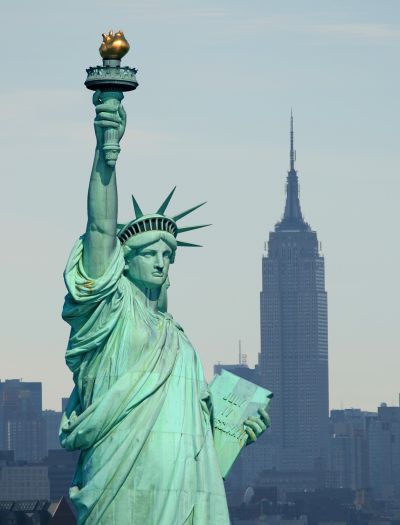Obama signs bill to boost US tourism promotion

Your support helps us to tell the story
From reproductive rights to climate change to Big Tech, The Independent is on the ground when the story is developing. Whether it's investigating the financials of Elon Musk's pro-Trump PAC or producing our latest documentary, 'The A Word', which shines a light on the American women fighting for reproductive rights, we know how important it is to parse out the facts from the messaging.
At such a critical moment in US history, we need reporters on the ground. Your donation allows us to keep sending journalists to speak to both sides of the story.
The Independent is trusted by Americans across the entire political spectrum. And unlike many other quality news outlets, we choose not to lock Americans out of our reporting and analysis with paywalls. We believe quality journalism should be available to everyone, paid for by those who can afford it.
Your support makes all the difference.Looking for an edge in the global war for tourism dollars, US President Barack Obama Thursday signed into law moves to attract more overseas travelers.
Obama signed the act "which establishes a corporation for travel promotion to encourage international travel to the United States," the White House said in a statement.
The effort is to be funded through a matching program featuring up to 100 million dollars in private sector contributions and a 10-dollar fee on foreign travelers who do not pay for a visa, with no money from US taxpayers.
Supporters of the law highlighted a forecast by the impartial Congressional Budget Office that it would create some 40,000 US jobs - and cut the ballooning US deficit by some 425 million dollars.
The US Travel Association industry group estimates that a 10-year drop in US tourism - much of it after the September 11, 2001 attacks - has cost some 440,000 jobs and a half-trillion dollars in related spending.
The average overseas visitor to the United States is estimated to spend about 4,000 dollars, and 1.8 million fewer of them came in 2009 than in 2008, according to the group's analysis of US Commerce Department figures.
Backers of the measure say rival tourist destinations like France and Italy have national advertising campaigns, and that the United States - where such efforts are typically the work of cities or states - needs one as well.
While 46.3 million more travelers took long-haul trips worldwide in 2009 than in 2000, the United States has welcomed 2.4 million fewer guests over the same period, the US Travel Association said.
But critics said the fees imposed on travelers from visa-waiver countries, mostly in Europe, could deter some would-be tourists.
bur-jkb/rl
Join our commenting forum
Join thought-provoking conversations, follow other Independent readers and see their replies
Comments